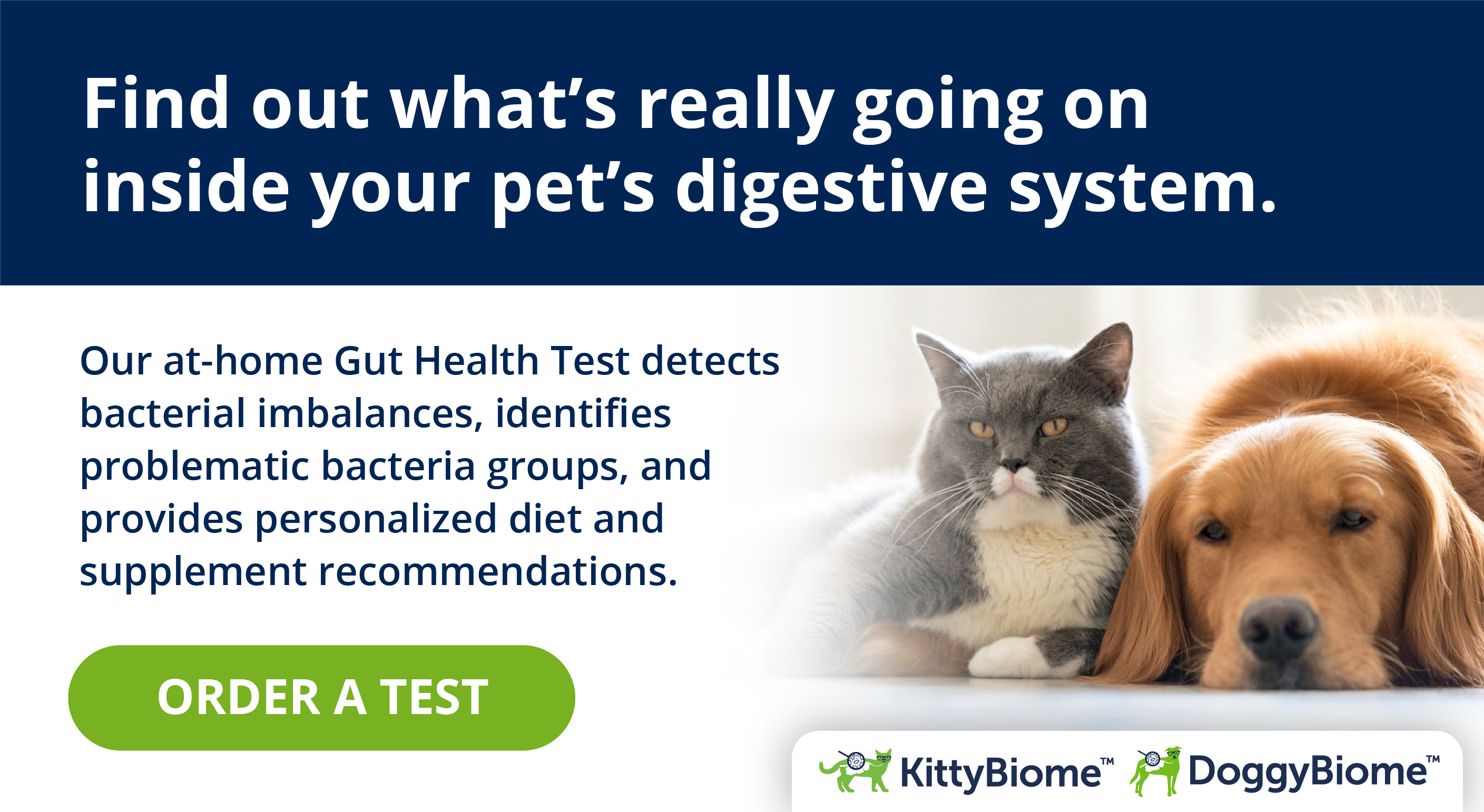Pet diarrhea: how to help your dog or cat

A look at what might be causing diarrhea in your pet, and what you can do to settle her upset tummy!
It can be worrisome when your cat or dog has a loose or watery stool. While occasional diarrhea is a completely normal reaction for purging something bad, anything occurring for more than 48 hours or on a regular basis may signal an underlying health problem.
Here are common causes of diarrhea in pets, and some advice on how to help them and when to call your veterinarian.
It was something they ate
A new diet can trigger diarrhea if the transition is too abrupt because it takes time for the digestive system to adjust.
TIP: It’s best to mix new food in with old food by gradually increasing amounts over 7–10 days.
Certain ingredients in your pet’s diet can cause digestive upset. Cats and dogs are carnivores, so they do best with a diet that is high in protein and low in carbohydrates. Some kibbles contain too many carbohydrates, which may cause an overgrowth of types of gut bacteria that contribute to inflammation and diarrhea.
Some pets have a food sensitivity or allergy to certain ingredients in their diet. This can cause diarrhea because their body is unable to digest a particular food properly. Pets can also develop food sensitivities as they age.
TIP: Talk with your veterinarian about the best diet for your pet. Consider adding fiber and other prebiotics to improve their digestive health by feeding beneficial bacteria in the gut.
Some human foods are not good for pets. For example, adult cats are lactose intolerant despite their love of milk, which can lead to diarrhea. Watch out for such toxic ingredients as Xylitol, avocado, chocolate, grapes, and onions.
TIP: If you believe your pet has ingested something toxic – whether it’s human food, a toxic houseplant, or chemicals – call your veterinarian or the ASPCA Animal Poison Control Center (888-426-4435) immediately.
An illness
Parasites and pathogens, especially those that take up residence in cat and dog digestive tracts, can cause diarrhea. Some common ones are tapeworms, roundworms, Giardia, Escherichia coli, Salmonella, and canine parvovirus.
TIP: If you suspect your pet has a parasite or you notice white specks in their poop, tell your veterinarian so they can run a parasite and pathogen screening. Keep up with your pet’s regular deworming medication and vaccinations to prevent these conditions.
A gut microbiome imbalance can lead to diarrhea when the good bacteria that live in the digestive tract are missing or not in the right proportions. Antibiotic medication can cause an imbalance because it kills good bacteria along with the bad. Diarrhea lasting for longer than three weeks could be a sign of inflammatory bowel disease (IBD), which is caused by chronic inflammation and is associated with an imbalance in the microbiome.
TIP: We recommend testing your pet’s gut microbiome to see if a bacterial imbalance is present, as an imbalance can often be resolved with dietary adjustments alone.
Keep reading about cat diarrhea and dog diarrhea, and make sure to contact your veterinarian if your pet has diarrhea that lasts longer than two days.





